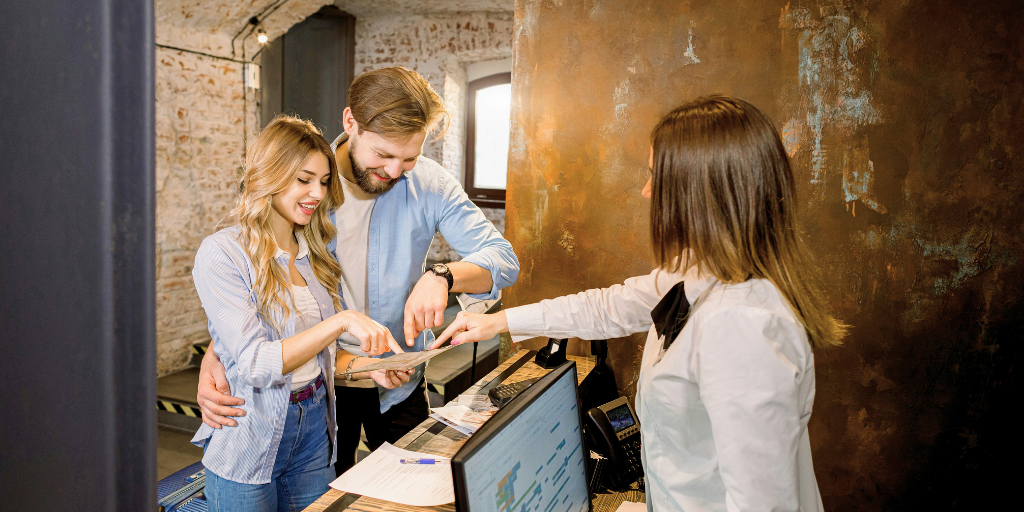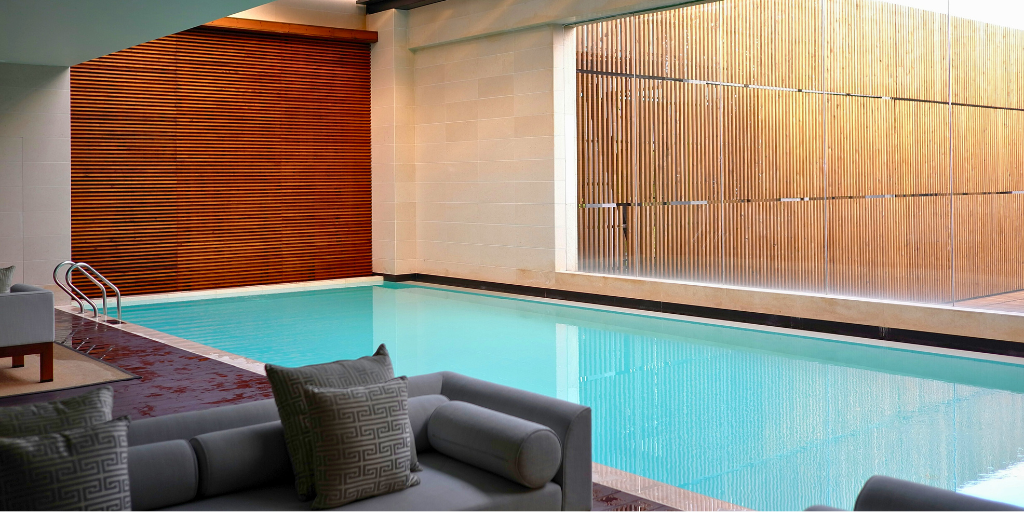A sign of modern hospitality is the tendency to move away from the drudge of mundane tasks, and such is the case of face-to-face check-in. Advancements in hospitality technology provide hoteliers with a unique opportunity to create a more pliable approach to handling guests’ check-in.
Hotel self-check-in kiosks and self-service apps allow guests and hospitality providers alike a chance to spend less time interacting with each other while handling the matter of entering into a business contract. While the idea itself might seem inhospitable at first, it is definitely something that guests are looking for in 2020.
Self-service technology can aid your establishment by focusing on the following:
1. Limited Front Desk Interaction
The current hospitality climate dictates a need for limiting interaction between staff and guests which is where self-check-in technology can prove invaluable. The full transaction of booking a stay with your establishment and checking in can now be delegated to a set of intuitive self-service hospitality tools such as a hotel self-service app and mobile hotel kiosks.
A hotel self-service app allows guests to book directly through your hotel’s direct booking engine, skipping over online travel agency fees, and allowing you to maximize RevPAR. The self-service app then provides guests with their individual booking number which they can use upon arrival in your establishment to check-in through your hotel kiosk.
The kiosk itself allows guests to choose the suite of their liking, with an opportunity for a last minute room upgrade. The kiosk presents the guest with your establishment's policies in a language of their choosing, and finally allows them to complete the transaction by entering their credit or debit card information which will also act as their digital wallet during their stay. If a guest wishes to make additional charger to their room, they can do so simply by informing staff or by completing transactions through the hotel’s self-service app. The app also provides guests with the opportunity to track what is being charged on their card.
Self-check-in hospitality technology greatly limits the time a guest spends checkining in upon arrival and it further allows your establishment to dismiss regulated check-in times, instead opting for a 24 hour check-in policy. A guest can be expected to spend as much time at the hotel kiosk as they would at an ATM, allowing for a sparser guest flow, and less lines being formed in front of the hotel’s registration desk.
2. Hotel Staff Can Focus on More Relevant Tasks
While guests can still choose to check-in directly through your hotel staff, there would be no need to overschedule personnel in case of a large group, as the hotel kiosk acts as a 24/7 employee. This leaves your staff with more time to focus on relevant tasks.
Health and hygiene are some of the main concerns of guests, by employing self-service technology you would be giving your staff enough time to keep a tight schedule on sanitation, while also providing guests with a safe and pleasant stay and your employees with a healthy working environment.
By removing the human element from check-in transactions you are also limiting the chance of human error. The self-check-in kiosk will alert the guest that they are entering information incorrectly and allow them to catch an issue before it occurs. In a sense a kiosk can eliminate some of the friction that could arise from your staff making a mistake with a booking or check-in, avoiding the conflict altogether.
3. Self-Check-in Encourages Direct Booking
In order for guests to use your self-service kiosk they must book with you directly through your hotel’s booking engine, either through your hotel’s website or your self-service app. The convenience of not having to wait in line or check-in at a certain time of day is enough to motivate potential guests to book directly and avoid OTAs.
This is all possible due to the self-check-in kiosk’s integration with your hotel’s property management system. Your PMS allows your staff to manage inventory and room rates with the help of intuitive and fully integrated tools, which automatically relist late cancellations and update room rates across all channels. Your kiosk is always synced in with the most current offers you can provide your guests, allowing you more room for effective upsells.
4. Self-Check-in Technology as a Revenue Optimisation Tool
Your hotel self-service app and self-check in kiosk also take over for upselling your guests on additional amenities, services and, the various packages your establishment provides. In many ways self-service technology is a much more subtle and efficient way of upselling guests as it allows them to explore the options your establishment provides while also giving them the ease of purchasing with a few simple clicks.
Online shopping experiences are proven to be less stressful than if they are done in-person. By having guests book dinner reservations, spa treatments, and various activities through your hotel’s self-service app, you will notice a trend of guests leaning towards the more exclusive options.
This is the result of an intrinsic cognitive bias which is simply not triggered when shopping through a device. When a guest is faced with an offer made by your staff their willingness to accept said offer will be less focused on whether or not the offer is something they would enjoy and more to do with whether they feel like the recommendation can be trusted. Some guests might even decline because they feel they’ve been put on the spot.
It takes your staff time to build rapport with your guests and with the current global health climate, it is simply unwise to recommend extended interactions between hotel staff and guests. However if a guest is given several options to choose from upon checking-in with your kiosk, they are much more likely to explore a room upgrade then if they were offered one at the check-in desk. The kiosks list your available room inventory with select images of each suite, allowing guests to choose a room to their liking, increasing your RevPAR in the process.
5. Reduced Need to Overstaff or Hire Seasonal Help
Many hoteliers have been forced to either dismiss or put staff on indefinite leave until services are fully operational. With travel restrictions still in place all over the world the labour cost of keeping your full staff on retainer might be too much considering the losses in revenue incurred during lockdown.
One way to offset this is to outsource some of your staff’s responsibilities to self-service technology. It is worth noting that self-service does not mean the complete dissolution of service staff. Your personnel will still play a key role in meeting guest requests by providing them with impeccable service, but they can do so with fewer people on shift. Self-service devices also limit the need for seasonal help, which can be a great relief if you are running an establishment on a tight budget.
While you might not be able to predict the flow and demand of the travel industry during 2020, self-check-in technology will always be at your disposal, allowing you to handle with ease an unexpected check-in wave, or by helping you upsell vacant suites during a prolonged dry spell.


